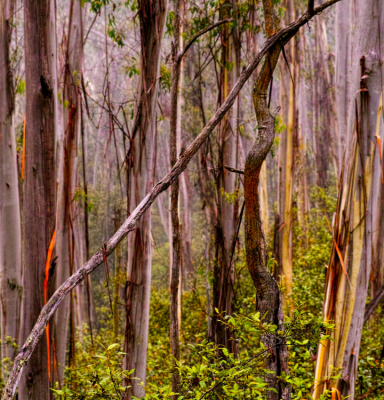
We are...
- Democratic and Inclusive
We are governed by our members and actively support Indigenous Peoples’ rights.
- Consistent and Robust
All FSC-certified forests are managed in line with the same global principles, and our certificate holders and certification bodies are accountable and independently audited.
- Credible and Trusted
We consult stakeholders on changes to our standards, have a dispute resolution process and enjoy broad NGO support.
- Global and Recognised
We operate globally, our iconic logo is recognised, and we help governments and organisations to meet agreed sourcing standards.
- Innovative and Ambitious
We are the pioneers of forest certification and we continue to innovate, whether that means certification in new sectors or using more efficient, digital tools.
Accreditation
FSC does not issue certificates itself. Independent certification bodies carry out the forest management and chain of custody assessments that lead to FSC certification. FSC sets the standards for forest management and chain of custody certification and defines the procedures that certification bodies should follow in their certification assessments. Certification bodies are accredited by an independent accreditation body. FSC’s accreditation body is Assurance Services International (ASI).
Trademark protection
FSC owns a portfolio of trademarks worldwide. These trademarks form part of the foundation on which the FSC system is built. We're vigilant in protecting our valuable trademarks and take measures to deal with identified violations.
Transaction verification
It is essential to limit inaccurate claims in FSC-certified supply chains. This is especially true for high-risk supply chains. Transaction verification is a process of comparing and then verifying all transactions within a specific product type, group or region over a given time period. Certification bodies are notified when transaction verification is necessary. Certificate holders are also informed and must cooperate with their certification body to provide the required data.
Wood identification
Traditional wood anatomy enables scientist to determine genus and family, and even species, depending on the circumstances. Technologies such as isotope, DNA and mass spectrometry can also help determine the origin of specific wood samples. Such testing can often determine the forest from where the wood originated provided samples from that forest are available for comparison. Wood identification technologies are used as part of FSC’s long-term plan to systematically address integrity risks in the supply chains of its certificate holders, to determine species and origin of harvest location(s).
Policy for Association
The Policy for the Association of Organisations with FSC (FSC-POL-01-004) or FSC Policy for Association, an expression of the values shared by organisations associated with FSC, defines the six unacceptable activities which organisations associated with FSC commit to avoid. It protects the reputation of FSC, and all entities associated with it, by acting as a safeguard against organisations involved in these unacceptable activities.
FSC will only allow its association with organisations that are not directly or indirectly involved in the following unacceptable activities:
a) Illegal logging or the trade in illegal wood or forest products
b) Violation of traditional and human rights in forestry operations
c) Destruction of high conservation values in forestry operations
d) Significant conversion of forests to plantations or non-forest use
e) Introduction of genetically modified organisms in forestry operations
f) Violation of any of the ILO Core Conventions
This policy applies to all organisations associated with, or seeking to associate with, FSC. This includes all organisations holding a contractual agreement with FSC, including a license agreement, cooperative agreement and a membership agreement.
The FSC Policy for the Association covers an organisation’s activities that do not fall within the scope of its FSC certificate. It states unacceptable activities that organisations associated with FSC must commit to avoid, and defines the consequences of a breach to this policy when such action is warranted.
Complaints
No system is perfect, but we take action when a problem is detected or reported. When we receive complaints or appeals from stakeholders, whether it is addressing performance, decisions taken or any other element in the FSC system, we take it seriously. Our team is committed to getting your issue heard by the right people swiftly and thoroughly.
If you are concerned that an FSC certificate holder is not following our rules, or involved in unacceptable activities, we want to hear from you. If you have any concerns about our process for certification (e.g. a certification decision or the performance of a certification body), get in touch. Would you like to raise a concern about the content or implementation of FSC standards, or FSC's performance? Let us know. Unhappy with a decision made by FSC? Then we want to hear from you.